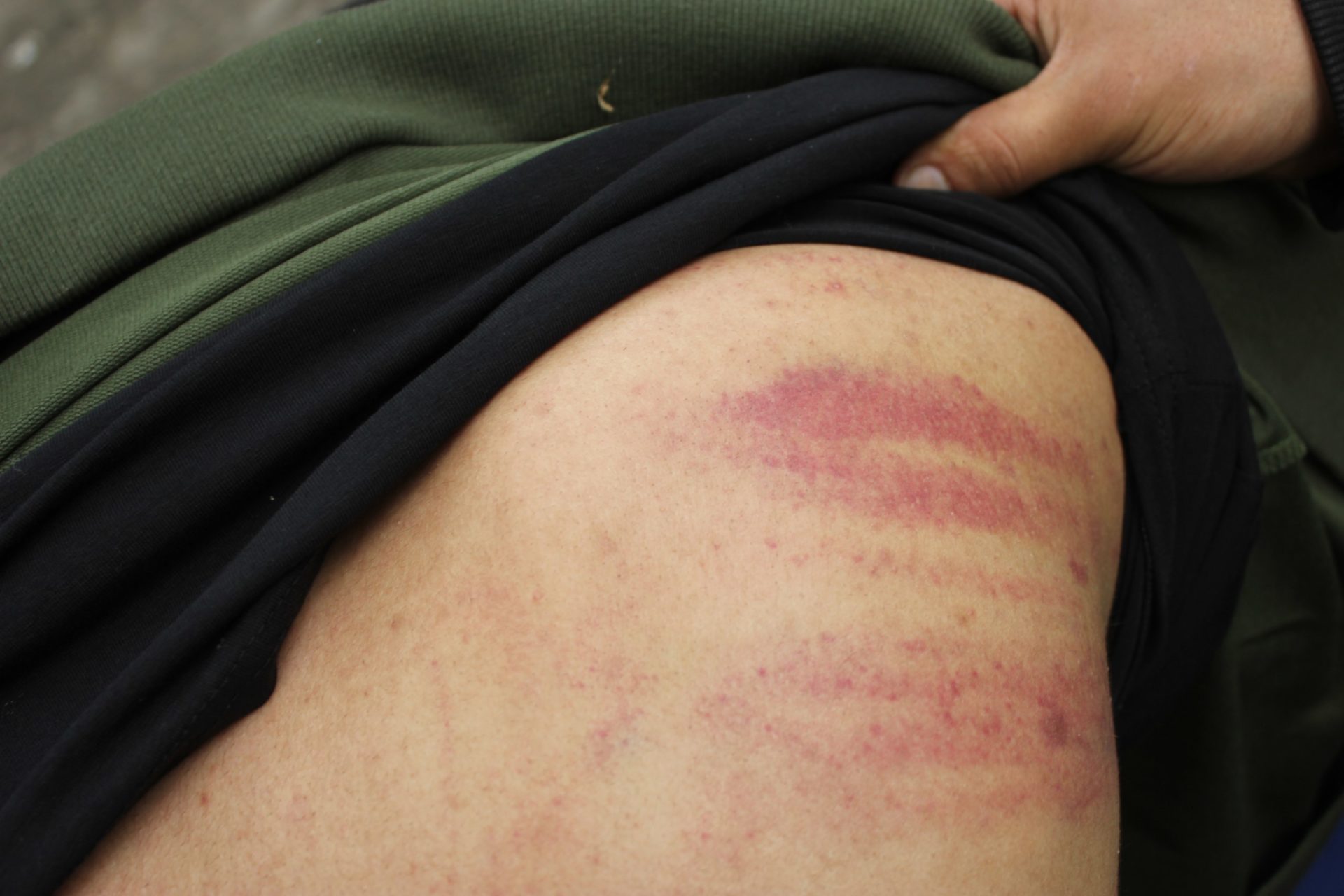Four members of a group of six men who tried to cross from Serbia into Croatia at the Batrovci border checkpoint on the A3 highway described the violence they experienced after their attempt was discovered. This group of men had stayed in Šid for approximately one month, and the majority had reportedly tried to cross together twenty-five times, attempting it almost every night.
The respondent declared that at a location approximately a ten-minute drive from the Serbian-Croatian border in Serbia, the men hid inside a large container, which was placed with a truck. He explained that at the border checkpoint, the truck was stopped and searched by uniformed men that the respondent thought was Croatian police. He stated that the men in uniform hit the underside of their container with batons prior to removing them, careful to ensure that they were out of view of the checkpoint’s security cameras as they did so. These men reportedly transferred them to other uniformed men, who the respondent thought were from the Serbia police, and who were already present at the checkpoint. The men remembered that nine men in uniforms were present but were unable to recall the precise number of Croatian men in uniform, stating that “so much” Croatian men “stand at the border.” All uniformed men communicated with the men exclusively in English.
The respondent added that the Serbian men in uniform then brought the group behind the truck, where the cameras could not record their activity, and committed physical and material violence against them. He said that three men were badly hurt. One man’s injuries included his inner thigh, which a man in uniform had stepped on with great force, large red bruises on his back, the result of being beaten with a baton, and a badly hurt lower arm and wrist, again from an assault with a baton and so damaged that the interviewer observed he struggled to use his hand due to evident pain. Two other men were allegedly punched, one in the nose and the other in the cheek. The respondent stated that all men in uniform had handguns holstered at their waists but did not use them to threaten the group.

The men were reportedly told that they must stare only at the ground; if they looked up, men in uniform hit them with batons until they resumed this position. Several respondents indicated through both speech and gesture that unifomed men had kneed them forcefully. They stated that one Serbian man was particularly violent.
The men in uniform reportedly broke two phones, which they then returned, and confiscated two others. One respondent explained that the one who broke one of the phones did so by putting it behind his back, out of view of any cameras, and smashing the screen with the base of his handgun. One respondent said his phone was not taken because he hid it in his sleeve, where the men in uniform did not think to search.
After detaining them for one or two hours, by the respondents’ best estimate, at the border, Serbian men in uniform reportedly put them into cars and drove them to various locations around Šid, Serbia. The respondents indicated that separate vehicles drove to at least three places. Each location at which the men were released was a significant distance from their point of origin. One respondent said that “six hours, eight hours, ten hours we [were] coming by foot” to return to their camp. The men in uniform told the respondents to “go to [the] camp.”
Because the men did not pass the border checkpoint, they did not attempt to request asylum, although they stated that they would have done so if given the opportunity.
